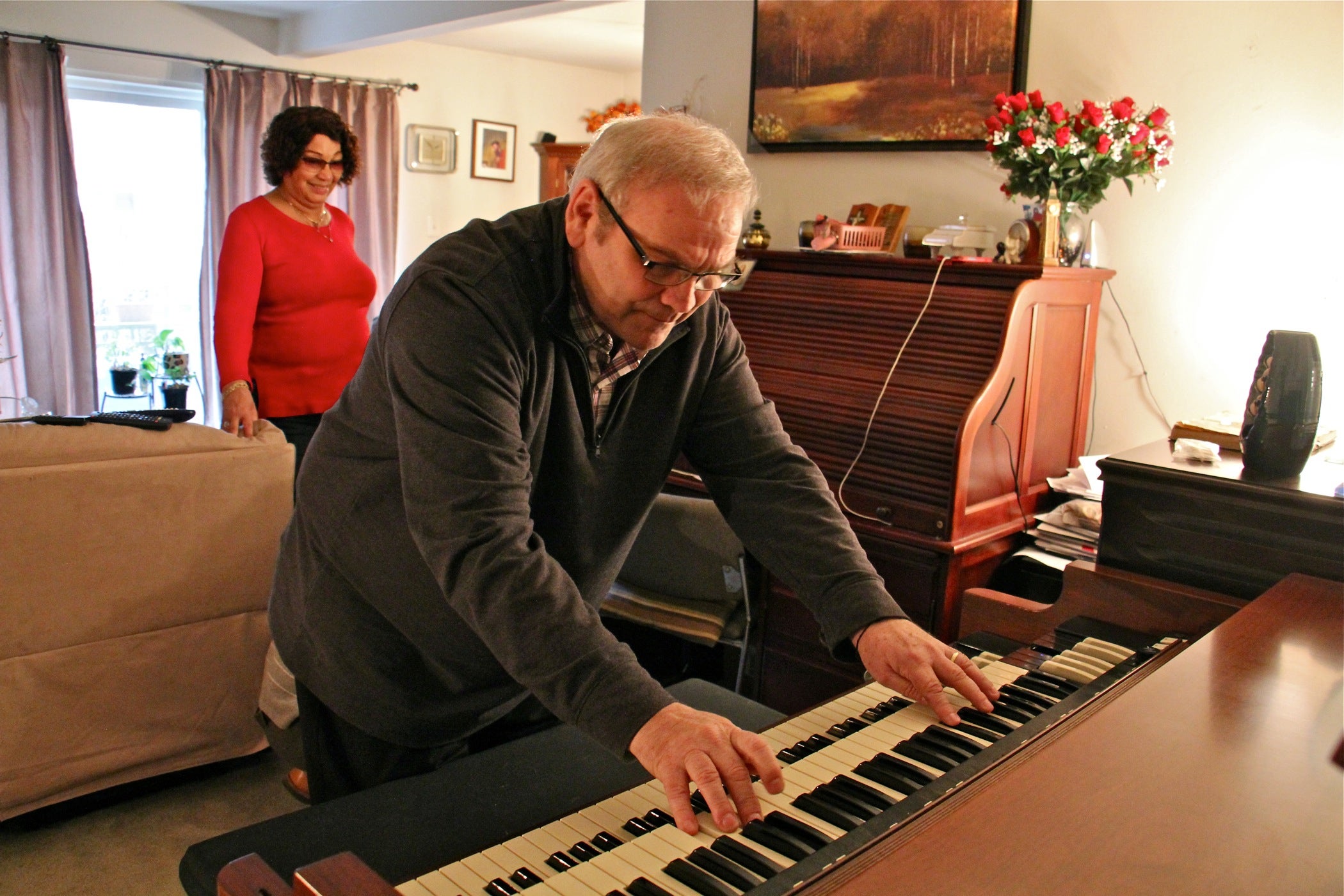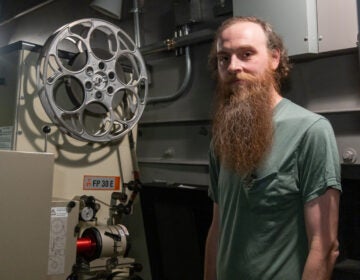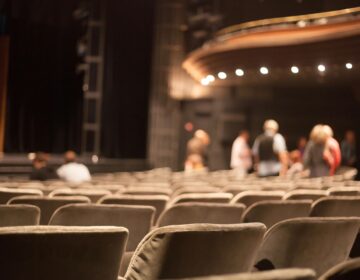Knocking on doors in search of Philadelphia’s jazz history
A pair of historians are hunting for artifacts for an archive of Philadelphia’s jazz history. They’re holding a scanning party to digitize bits of music history.
Listen 2:37
Margaret McGriff (center), widow of jazz organist Jimmy McGriff, shares her trove of papers from her husband's career with Jack McCarthy and Suzanne Cloud of the Philadelphia Jazz Project. (Emma Lee/WHYY)
In the early 1970s, Margaret Norfleet was working as a bartender on Clinton Avenue in Newark, New Jersey, across the street from a jazz club called the Golden Peacock. That was where she met Jimmy McGriff. They started dating.
McGriff, a native of Philadelphia, was one of the great organists of hard bop jazz. He worked for more than 50 years as a sideman, a bandleader, and a recording artist with dozens of albums under his name.
By the time Norfleet met him in 1972, McGriff had already established his musical reputation that stretched from a Count Basie big-band style, the bluesy sounds of “Blues for Mister Jimmy”, and the soul groove of Electric Funk.
Norfleet’s mother could not have been more thrilled.
“My mom had his albums,” said Norfleet (now Margaret McGriff), remembering a time in 1972 that her mother came up from Virginia to visit. “I had just started dating him, and I told her, ‘Jimmy is taking us out.’ She said, ‘Jimmy McGriff is taking us out to dinner?!’ She already had 13 kids, and I thought she was going to have another one.”
Margaret’s mother may have been more excited about Jimmy than she was. After a few months, she broke off the relationship.
“I thought he was a player. I said, ‘I can’t deal with this dude, I’m out of here,” she said. But 20 years later, in 1992, they reconnected. Shortly after they married and stayed together for more than 15 years.
“He used to sit up in his office at the house we had in Voorhees. He had his own recording studio in there,” said McGriff. “He would just sit up there and write music and record it onto cassettes. I bet you there was over a hundred, from him sitting around and playing around with music.”

Jimmy McGriff died in 2008, at 72, from complications of multiple sclerosis. Margaret downsized to a one-bedroom apartment in Marlton, New Jersey. She didn’t hang onto those tapes. She threw away a large box of them. But she kept all of her late husband’s paperwork: the hand-written band arrangements, contracts with clubs, correspondence, and flyers.
Last week a stack of folders filled with papers on McGriff’s kitchen table were being inspected by Suzanne Cloud and Jack McCarthy, of the Philadelphia Jazz Legacy project. They are surveying what remains of the region’s jazz history, with an eye to ultimately collect it into an archive.
While they lament the loss of the tapes (“Those not commercially-released recordings – rehearsal tapes, musicians noodling around — those are precious,” said McCarthy) the two were grateful that McGriff had held onto all of her husband’s hand-written papers.
All that is gold to a music historian.
“They could find out how much it costs to mount a big band. How much everyone was getting paid. Where they stayed between gigs,” said Cloud. “A lot of nuts-and-bolt stuff.”

With support from the Pew Center for Arts and Heritage, Cloud and McCarthy are in the first discovery phase of the project that could ultimately see a large, physical archive of jazz history housed in the Clef Club, an educational and performance space on South Broad Street in Philadelphia.
“Most musicians don’t seem to have been cognizant of their history and documenting it. A lot of were just getting to the next gig,” said McCarthy. “So when you talk to them they say ‘I haven’t really saved anything. I don’t really have much.’”
When they come knocking on doors of musicians, and families of musicians and start combing through attic, basements, and garages, they have found that people often don’t know what they have. Doodles on bar napkins, business cards, the trombone parts to “Cadillac Club,” the all play a part in shaping history.
McGriff still has the Hammond organ her late husband used to play, and the accompanying Leslie rotating baffle speaker. She opened up the organ bench for Cloud and McCarthy and pulled out more sheet music, photographs, and a Hammond wristwatch the organ company had gifted to Jimmy.
Although the apartment is small and tidy, McGriff is able to hide a lot of history in its nooks.
“I think there’s a couple of cassettes in the closet back there,” she said. “Every time I decide to clean there’s another cassette falling. I say, ‘Oh, jeez! Where are they coming from? They’re coming out of the wall!’”
This Thursday, the Philadelphia Jazz Legacy Project is hosting a scanning party at the Clef Club, where people are encouraged to bring paper-based jazz artifacts to be digitally preserved. Naturally, there will be music: saxophonist Sam Reed, who used to lead the house band at the old Uptown Theater on North Broad in the 1970s, will perform with his trio.
WHYY is your source for fact-based, in-depth journalism and information. As a nonprofit organization, we rely on financial support from readers like you. Please give today.





